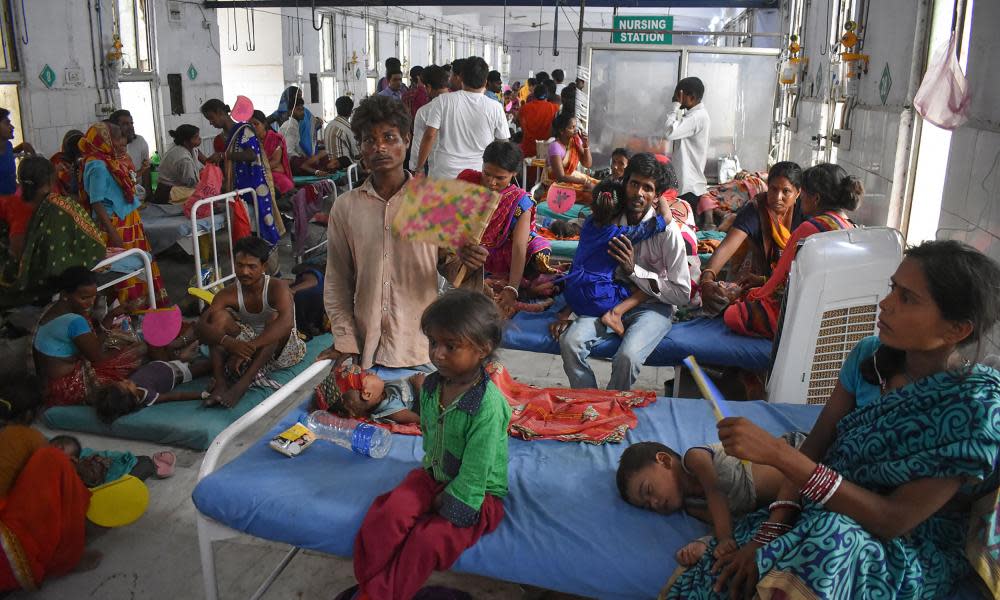How lychees are linked to encephalitis risk in malnourished children

The recent deaths of more than 110 children in India from encephalitis have been attributed to natural toxins in lychees. But experts now suggest that the fruit itself may not be the cause of the illness but mainly the fact that poor children go to bed on an empty stomach after eating it.
At least 31 children have died in Bihar state from acute encephalitis syndrome, according to health officials. Angry parents of the dead children have been protesting at the Sri Krishna medical college in Muzaffarpur, the district where most of the deaths occurred.
Some confronted Nitesh Kumar, Bihar state’s chief minister, for visiting the hospital only after the death toll passed 100, a full fortnight after children began to be brought in suffering convulsions and high fever.
What precisely causes the brain inflammation is not clear. Heat and humidity could be factors, and also genetic predisposition because not all the children in a family fall ill despite the same conditions.
Several studies have pointed to a connection between malnutrition and a toxin found in lychees. The fruit grows abundantly in the orchards of Muzaffarpur. Crucially, doctors have noticed that children who live in the city and are from more affluent backgrounds have not been among the dead. It is only children from impoverished rural families who have fallen ill.
Related: At least 31 children in India killed by toxin in lychees
Arun Shah of the Indian Academy of Pediatrics, who thinks the unofficial death toll is probably in excess of 200, said: “They roam around all day in the heat eating lychees to feel full.
“It’s not the taste they are after but just filling their stomachs. Then they go home and go to bed without having a proper meal because their parents are too poor. It’s not the lychee that’s the culprit but malnourishment.”
Shah and his colleagues described the disease background in various studies and in a report published in the Lancet Global Health journal in 2017, based on a study carried out by the National Centre for Disease Control in India, and the US Centers for Disease Control and Prevention.
Their study found that children in the affected villages ate lychees during the day and often did not have dinner. The toxin known as hypoglycin A, which is naturally present in lychees, leads to a reduction in blood sugar levels during the night, causing hypoglycaemia. Typically, the children fell ill the next morning after eating the fruit, with serious symptoms such as high fever, brain function derangement and seizures.
Doctors say children can be treated through an infusion of dextrose within four hours of the onset of the illness. An equally simple preventive technique is to ensure that no child goes to bed without eating a meal first.
Outbreaks of acute encephalitis syndrome have occurred annually during summer months in the same Bihar districts since 1995.
“To prevent illness and reduce mortality in the region, we recommended minimising lychee consumption, ensuring receipt of an evening meal and implementing rapid glucose correction for suspected illness,” the Lancet report said.
In 2016, Shah and a team of additional doctors gave clear guidelines to the Bihar government, telling parents to keep their children away from lychee orchards between April and June, and urging ministers to tackle malnutrition in the poorest families and educate parents about the need to give children an evening meal if they have eaten lychees during the day.
“The number of deaths fell in 2017-18 because the Bihar government began implementing these guidelines. But this year they took their eye off the ball because they were too caught up with the general election. I would say the state government is certainly guilty of shortcomings and carelessness,” said Shah.

 Yahoo News
Yahoo News 
